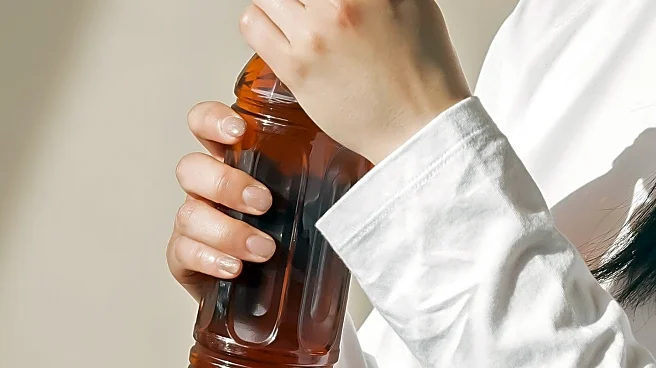What's Happening?
The Medicines and Healthcare products Regulatory Agency (MHRA) in the UK is intensifying efforts to combat the illegal trade of unlicensed botulinum toxin products, commonly known as Botox. This action follows a series of botulism cases across England, with 41 individuals affected between June and August 2025. Botulism, a potentially fatal condition, impacts the nervous system and can lead to paralysis if untreated. The MHRA warns that those caught selling or supplying unlicensed Botox could face up to two years in prison and unlimited fines under the Human Medicines Regulations 2012. The agency is deploying additional resources to identify and prosecute offenders, emphasizing the dangers posed by untrained individuals administering these treatments. Since May 2023, over 4,700 vials of unlicensed botulinum toxin have been seized, primarily originating from South Korea.
Why It's Important?
The crackdown by the MHRA is crucial in safeguarding public health, as the illegal distribution of unlicensed Botox poses significant risks. The rise in botulism cases highlights the dangers of unregulated cosmetic procedures, which can lead to severe health complications. This initiative aims to protect consumers by ensuring that only qualified healthcare professionals administer botulinum toxin in clinical settings. The enforcement actions are expected to deter illegal activities and promote safer practices within the cosmetic industry. The move also underscores the importance of regulatory oversight in preventing the exploitation of cosmetic treatment popularity for profit at the expense of safety.
What's Next?
The MHRA plans to continue its enforcement efforts, working with local authorities to ensure clinics offering anti-wrinkle injections and fillers meet strict licensing standards. The agency will use its full range of enforcement powers to shut down illegal operations and bring offenders to justice. Consumers are urged to verify the credentials of practitioners and ensure treatments are conducted in regulated environments using licensed products. The ongoing crackdown is expected to lead to more seizures and prosecutions, further reducing the prevalence of unlicensed Botox in the market.
Beyond the Headlines
The crackdown on fake Botox sellers raises broader ethical and legal questions about the cosmetic industry. It highlights the need for stringent regulations to prevent unqualified individuals from performing medical procedures. The situation also reflects the growing demand for cosmetic treatments and the potential for exploitation by unscrupulous actors. Long-term, this may lead to increased scrutiny and tighter regulations in the cosmetic sector, ensuring that safety and efficacy are prioritized over profit.









